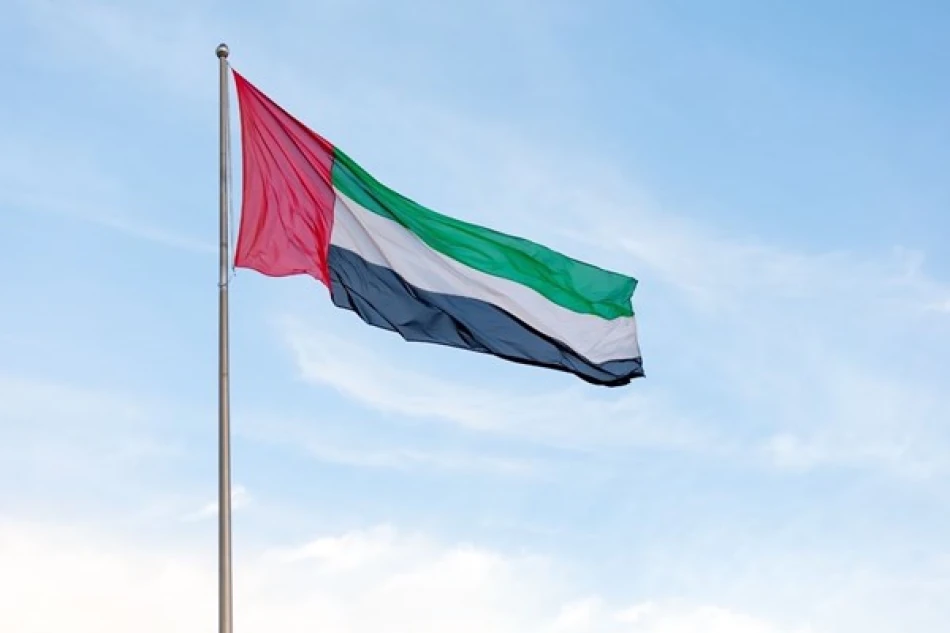
UAE Leads Global 'Haleon' Health Inclusion Index, Setting Benchmark for Accessible Healthcare
UAE Emerges as Global Leader in Health Inclusion, Setting New Standards for Preventive Care
The United Arab Emirates has claimed the top position worldwide in health awareness programs, community participation in health policies, and quality of life improvement, according to the newly launched Health Inclusion Index. This achievement positions the Gulf nation as a model for comprehensive healthcare systems globally, while demonstrating significant economic returns from preventive health investments that could save billions in healthcare costs.
Comprehensive Assessment Reveals UAE's Healthcare Excellence
The Health Inclusion Index, developed by Haleon in collaboration with Economist Impact, evaluated 40 countries across 58 sub-indicators covering health literacy, awareness, inclusion, and equity. The results were announced during a high-level discussion panel in Abu Dhabi, bringing together government officials, healthcare experts, and industry leaders.
Beyond its first-place ranking, the UAE secured second place globally in comprehensive health system implementation and ranked among the top five countries for person-centered healthcare. The nation also achieved tenth place worldwide in health literacy, which has increased by 30% over the past three years through enhanced awareness efforts, improved access, and strengthened cross-sector partnerships.
Economic Impact of Health Inclusion Strategies
Massive Cost Savings Through Prevention
The index revealed compelling economic arguments for comprehensive health inclusion models. According to the report, reducing health literacy gaps by just 25% could save $2.3 billion annually worldwide. Poor health literacy currently increases individual healthcare costs by 2.8 times, highlighting the financial burden of inadequate health education.
Specific areas show remarkable potential for cost reduction. Improving oral health literacy could save $572 million in lifetime dental decay costs, while the loss of over 8.2 million work hours annually due to dental problems results in productivity losses exceeding $175 million.
Targeted Health Interventions Yield Substantial Returns
The research identified several high-impact areas for health investment. Addressing anemia among women of reproductive age could save approximately $336 million annually in healthcare costs. Meanwhile, improved management of gum disease is expected to reduce Type 2 diabetes costs by more than $809 million over a decade, demonstrating the interconnected nature of health conditions.
Strategic Implications for Regional Healthcare Development
The UAE's success reflects a broader trend among Gulf Cooperation Council nations toward comprehensive healthcare transformation. Unlike traditional healthcare models focused primarily on treatment, the UAE has prioritized preventive care and community engagement, creating a sustainable framework that other nations are beginning to emulate.
This approach aligns with global healthcare trends seen in Singapore and parts of Europe, where governments recognize that investing in health literacy and preventive care generates superior long-term economic returns compared to reactive treatment models.
Building Resilient Healthcare Systems
The index emphasized that comprehensive health models particularly benefit vulnerable populations, including women, low-income groups, and elderly citizens. This focus on health equity strengthens economic resilience by ensuring productive workforce participation across all demographic segments.
Dr. Amniyat Al Hajri, Executive Director of the Community Health Sector at Abu Dhabi Public Health Center, emphasized the commitment to preventive approaches in building comprehensive health systems, noting that awareness and community cooperation represent fundamental pillars for achieving a healthy and sustainable future.
Multi-Phase Implementation Strategy
The index launch represents the first phase of a multi-stage effort to integrate health inclusion and literacy concepts into healthcare strategies and living experiences across the region. This systematic approach suggests the UAE views health inclusion not as a single initiative but as a foundational element of its long-term economic and social development strategy.
Industry leaders highlighted that the index serves not merely as a measurement tool but as a call to action for removing barriers to daily health access. The emphasis on person-centered care and improved quality of life positions the UAE as a regional hub for healthcare innovation and best practices.
As healthcare costs continue rising globally, the UAE's model demonstrates that strategic investment in health inclusion and literacy can generate substantial economic returns while improving population health outcomes. This approach may become increasingly attractive to governments seeking sustainable healthcare solutions in an era of aging populations and rising chronic disease prevalence.
Most Viewed News

 Layla Al Mansoori
Layla Al Mansoori






